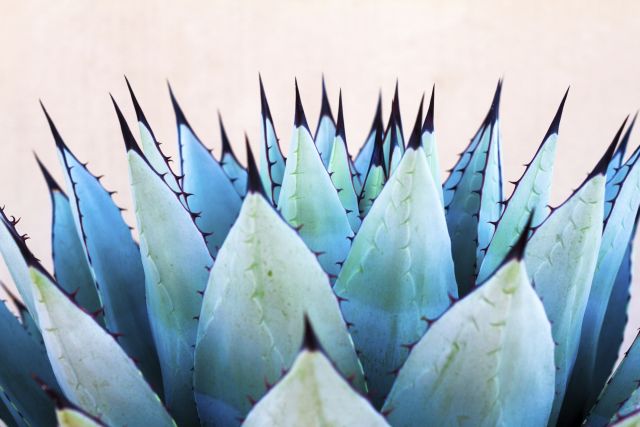Could it be true? Is there really an all-natural, low-calorie sweetener—with no aftertaste—that doesn't send your blood sugar into the stratosphere? Fans say agave (ah-GAH-vay) nectar fits that description. And to judge by the flood of agave-sweetened foods and drinks on supermarket shelves—hundreds have been introduced in the last 2 years—the new sweet stuff has a lot of believers. It's even showing up in cocktails at trendy bars. So, is it true? Or too good to be?
T or F: Agave is super sweet.
True indeed! It's four times sweeter than white sugar. Just 1/4 teaspoon of agave nectar/syrup approximates the sweetness of 1 teaspoon of sugar, costing you just 4 calories instead of 16.
T or F: Agave is all natural.
True, sort of. But "all natural" doesn't mean "not processed." Agave comes from the desert-dwelling succulent Agave tequilana, which is also the source of tequila. However, turning the plant's juicy sap into a syrupy nectar you can drizzle on yogurt or stir into tea takes some doing. Some manufacturers heat the sap; others use enzymes to convert it into table-ready syrup.
T or F: Agave has no flavor.
True and false. It depends on whether the syrup is light or dark. The lightest types are virtually flavorless, but darker varieties have a maple- or caramel-like taste that you may take to . . . or not.
T or F: Agave has a low glycemic index (GI).
True. Because agave nectar is mostly fructose, it makes a pit stop for processing in the liver, which lowers its glycemic index (GI)—a measurement of how quickly a food makes blood sugar rise. Table sugar is about half glucose, which goes straight to the bloodstream and sends blood sugar zooming in minutes.
T or F: Agave is a healthy sweetener.
More false than true. The major health benefit is that you may use less agave than sugar to get the same sweetness. But that's about where the health-buck stops. People who've heard all the bad press about high-fructose corn syrup—and avoid it like the plague—need to realize that agave nectar is a high-fructose syrup (at least 75% fructose). Many health experts believe high-fructose foods are not good for you. "Perhaps most worrisome is that excessive fructose may increase the risk of metabolic syndrome and diabetes," says Richard Johnson, MD, author of The Sugar Fix: The High-Fructose Fallout That is Making You Fat and Sick (2008). It also triggers a combination of unhealthy effects that can eventually lead to a host of troubles, including heart disease and stroke, according to Johnson and others.
Bottom line: If you've got a serious sweet tooth, a little agave syrup now and then may help you control calories and blood sugar spikes. But that's as far as it goes—and the trade-offs aren't great. Sorry about that.
Need more incentive to harness your sweet tooth? Learning to read labels and avoiding foods with saturated and trans fats, simple sugars, or processed grains listed as one of the first five ingredients can make your RealAge 3.6 years younger.






